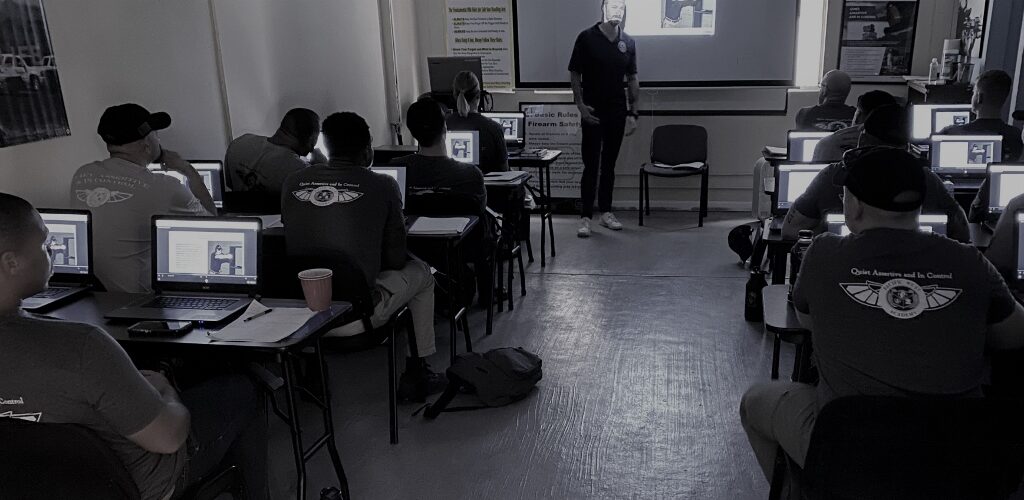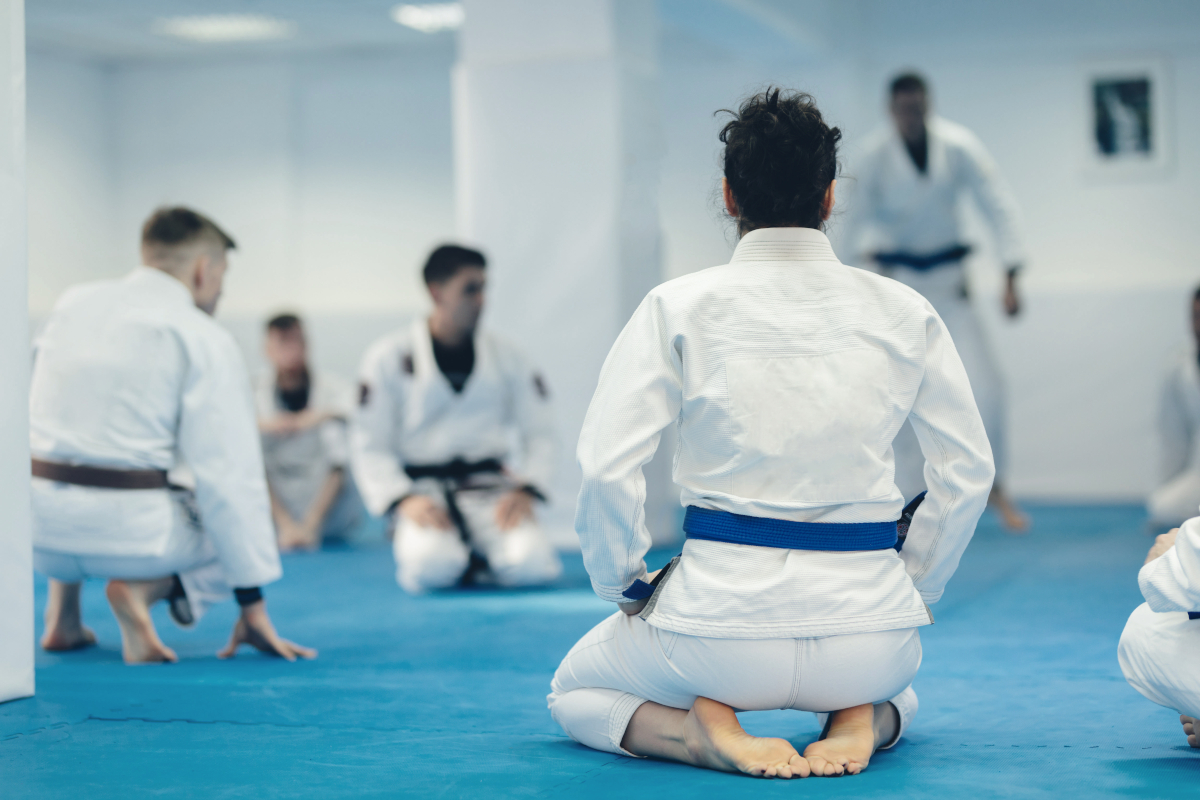

Martial Arts in the Executive Protection World
Martial Arts in the Executive Protection World
In the world of Executive Protection training a frequent question asked by new and aspiring agents is: “Which martial arts should I train in for Executive Protection?” Needless to say there are an endless number of suggestions and opinions floating around the industry, there is a tendency for the EP agent to base his opinion on whatever the local police department is doing or whatever the military is doing, or simply whatever is hot on YouTube and the Martial Arts (MA) community at large and while this is not the worst approach ever, does it really meet the needs of your everyday Agent?
First it is important to acknowledge that being utterly physically devastating is not the end goal of all MA training, what most agents need to gain from MA training is physical and emotional stress inoculation. If you have never had someone who is bigger and stronger than you step to you in an aggressive fashion whose intentions you are uncertain of you are unlikely to deal with this situation in a professional manner while keeping you and the client safe in the absence training and experience. Familiarization with the mental stress of social conflict and the ugliness of a violent encounter is crucial to understand for all EP agents, if you needed a bodyguard would you hire one that has never been punched in the face whether in a live situation or training? Would that be information that you would be comfortable with your bodyguard not knowing about himself? These are important questions that are not unreasonable for a client to have of his agent, there is no way that the agents mile time, bench press, or squat is more important. How likely is someone who responds poorly to being punched in the face responds effectively when bullets start flying at him during an assassination attempt or some other violence that your client may be near?
What we see over and over again from the police and security world is that officers and agents with a solid foundation in the fundamentals of fighting handle their encounters many times better than officers and agents that don’t have them. In a recent segment on HBO’s real sports a study conducted on the Marietta Police Department showed that officers who had either been through the departments Gracie Combatives class or who were regular practitioners of BJJ were not only less likely to harm a suspect during an arrest and control situation, they were also orders of magnitude less likely to use force at all. This is of course due to the many benefits that MA training provides such as confidence and humility, there is nothing like losing at fighting (which will happen to you a lot on the mats) to keep you from wanting to engage in the real deal. When you understand the physical ugliness of an armed or unarmed conflict you are less likely (Police officer/agent) to have a desire to go down that road, which appears to lead to more attempts at de-escalation by the officer/agent.
Now that we have established some data and philosophical points lets return to the original question of:”which martial art should I train in?” There is no shortage of options for the EP agent to choose; however there are only a couple of real options that an agent can train in that will lead to consistent advantages in the field. The fundamentals of fighting are what we see rise to the top during conflict, there does not appear to be a substitute for how well the officer/agent can punch, kick, and grapple, and of course whether he/she is conditioned enough to carry out said movements, and if he/she has the situational understanding of when to use force so that said force is legal and ethical. MMA gyms are great places to learn the fundamentals of fighting as a whole, and to create the physical advantages that lead to the agent being able to control the situation in its entirety.
What makes MMA such a powerful skill set is that skill set will be constantly pressure tested in live sparring which you will do plenty of in an MMA gym, if you cannot strike that weakness in your game will be impossible to ignore, as will your ability to grapple and your physical ability to maintain a combative pace. In an MMA gym you will literally feel your weaknesses, the same cannot be said about most so called “hard core combative gyms” where you will practice a variety of skills and drills and then be asked to demonstrate said skills on a completely compliant opponent, I cannot think of a more detrimental and less effective way of preparing for a possible life and death situation. Of course most gyms are businesses and many school operators are left between selling unsuspecting students a false sense of security and closing their businesses down so I understand the dilemma. However MMA gyms are usually centered around the fight team that the gym sends into competition so your training partners will be actual fighters and not your typical “self defense student” who’s there to learn “a couple moves”. MMA is a culture of testing and evolution, if something doesn’t work on a resisting opponent then it is simply discarded and room is made for a more effective alternative. There is no pomp and circumstance in an MMA gym you will be able to focus on what is important which are the fundamentals of fighting, there are no short cuts, nobody cares what famous self defense master who’s seminar you attended for a weekend or anything of the sort, all that matters is what will make us better at the physical act of fighting.
Where MMA gyms sometimes come up short in is on the matter of dealing with weapons, tactics, and de-escalation. You will not learn how to deal with a knife attack at a typical MMA gym, (unless they have a combatives program which some of them do) or how to deal with a gun, impact weapon, or handling a social conflict that could turn ugly, or the negotiating techniques that many EP agents need to employ while on the job. These could be politely explaining why now is not a good time for a selfie or autograph or even something that seems as mundane as securing the best possible parking spot for the clients vehicle. These skills are usually acquired by the agent with on the job training sometimes provided by a more senior agent who imparts many of these lessons on to the younger agent, however there is also no shortage of experts many of whom have free videos on youtube and who frequently have seminars on the weekends that teach excellent de-escalation techniques, situational awareness/understanding, and general tactics on how to escape, evade, or even confront threats to you or your clients. And many of these instructors can really impart very relevant skills to you in a relatively short period of time, and going to a few seminars a year on such topics can really improve your overall comprehension of conflict.
However in the end fighting is fighting violence is violence, and violence doesn’t know or care whether you are a bodyguard or someone picking up their kids from school, and from what we can observe through documented violence and the cumulative violent experiences of institutions that try to prepare people for these situations is that these conflicts often come down to who became aware first of the fact that violence was looming and who was more well prepared physically and psychologically for something as ugly as violence. In order to effectively handle these situations regular training in the fundamentals of fighting is crucial in fact 90% of your regular weekly training should be centered in it. Punching, kicking, grappling, if you do those things better than your opponent and you use the correct tactics to put yourself in position to use them then more often than not you will prevail. There is no reason why a professional security person cannot engage in 150-200 hrs a year of martial skills training, if you are able to get to the 250-350 hrs. a year level then you are doing more than 95% of all law enforcement and security agents. If you have a regular gym routine (weights, cardio) and you feel you get something from it then of course continue that training, however if I’m stuck between getting in a good session on the mats that could save my life or getting on the Stairmaster, the vast majority of the time I’m picking the mats.
If you don’t have access to an MMA gym the next best option would be BJJ, and if you can find a gym that teaches “Self Defense BJJ” then that would definitely be the way to go in the absence of a good MMA gym, Self Defense BJJ will make you focus on the realities of street conflict make you tactically aware of the types of situations you’re in and give you tools with how to deal with the conflict in a variety of ways, however the emphasis will be on grappling based solutions which many times are what is needed however those skills are a little more geared towards a police officer rather than an EP agent who should favor fighting skills that are less committal than ground grappling, you will also receive a thorough education in vertical grappling which you yourself could adapt to the realities of the situations you find yourself in most frequently. Sometimes you have a client that loves country clubs sometimes you have a client that likes night clubs, you will need be very successful before you get to pick and choose your clients so your ability to adapt to a variety of settings will be crucial. However to be clear it is difficult to escape the benefits that grappling brings to the agent, grapplers are very cool under pressure because they are very used to being uncomfortable something that many practitioners of many other arts cannot really claim, and the strength and conditioning advantage that is gained through grappling training cannot be gained through other types of training, you might be better at moving weights than a grappler you are not better at moving humans which is what a grappler is good at, and that is what you will be moving should you be in a grappling situation. And we know through thousands upon thousands of fights that in a 1v1 the guy with the grappling advantage wins the vast majority of the time.
So get out there, weigh your options and make a decision, there have never been more options to Law Enforcement and Security personnel, yet the participation rates of people in those professions leave a lot to be desired, be a part of the solution and GET ON THE MATS
The Certified Executive Security Specialist program at Pacific West Academy covers all these themes.
